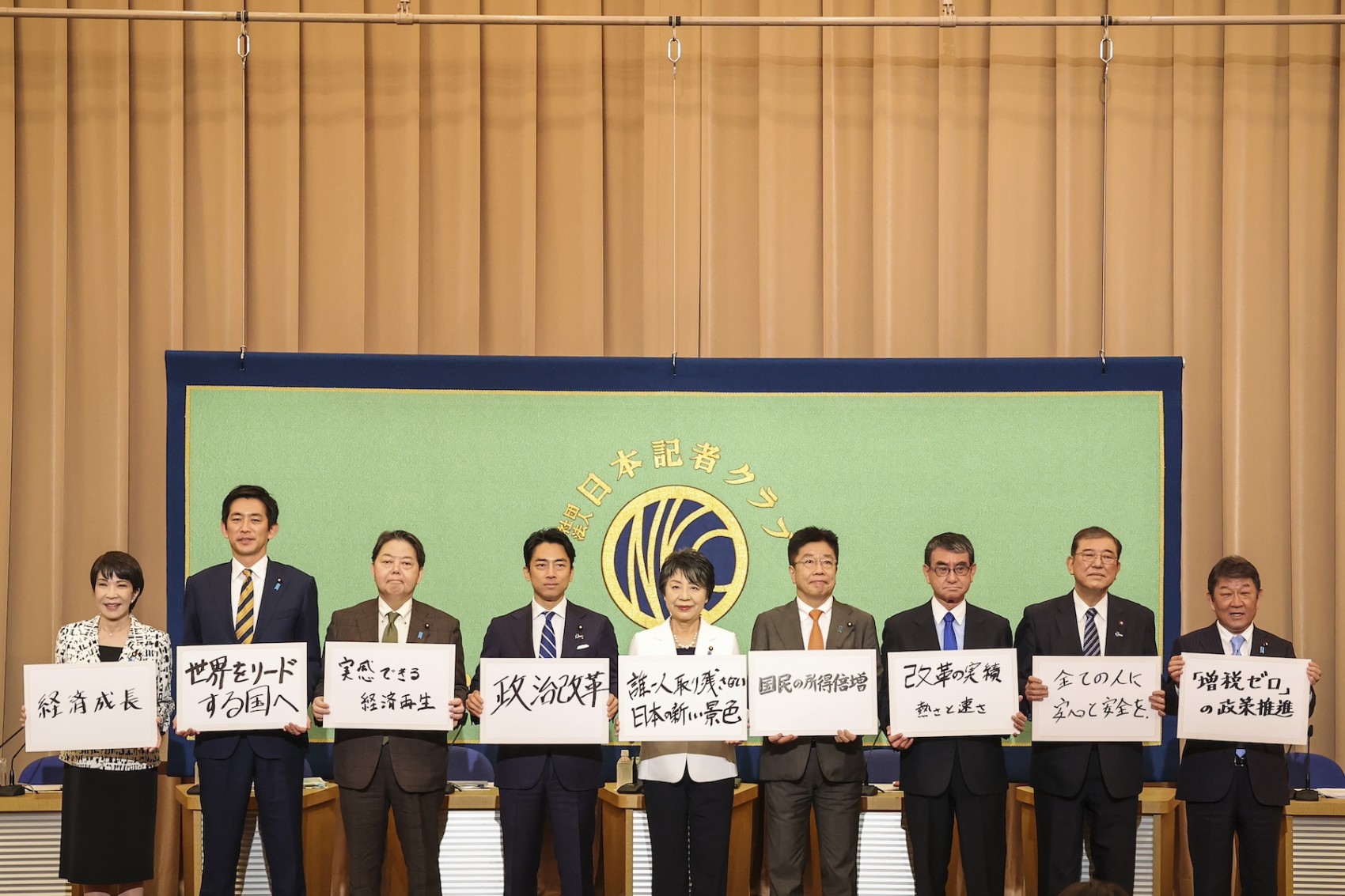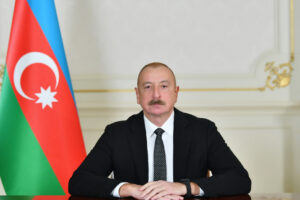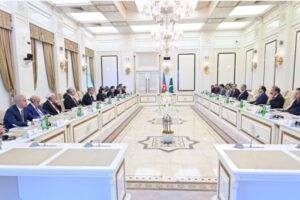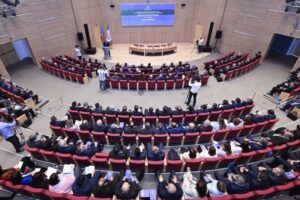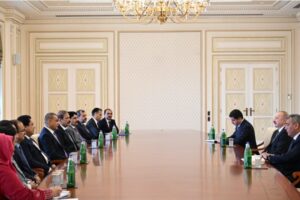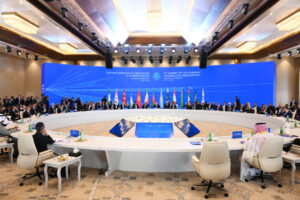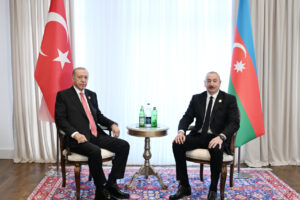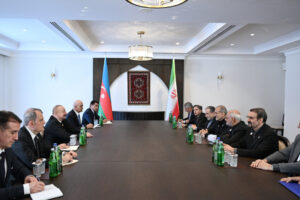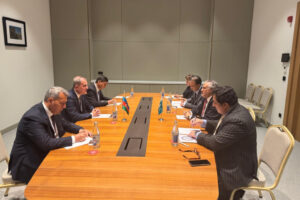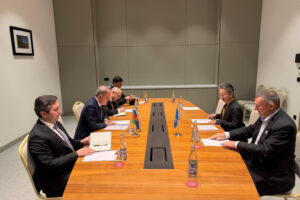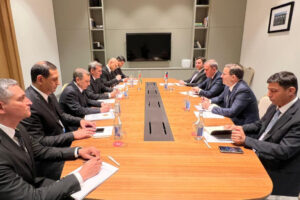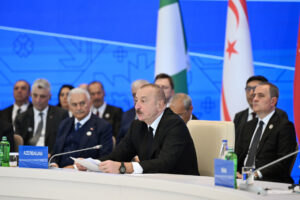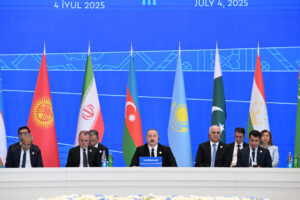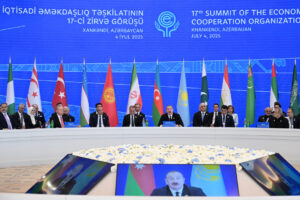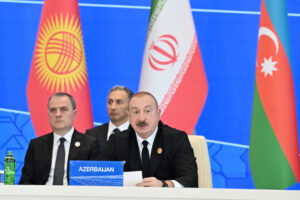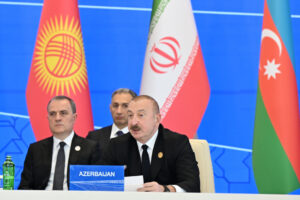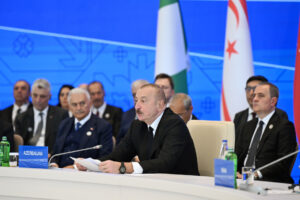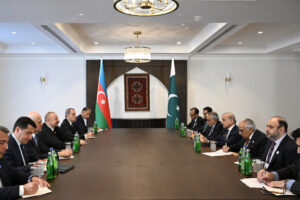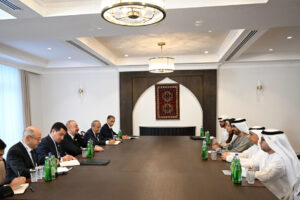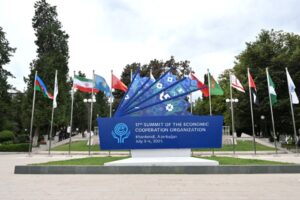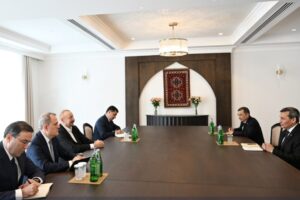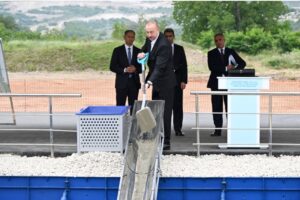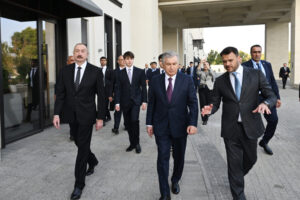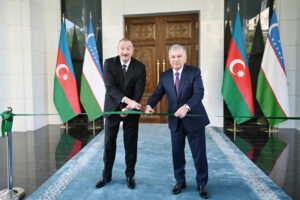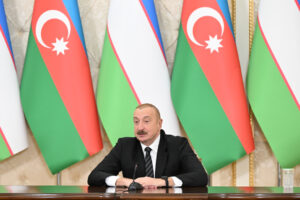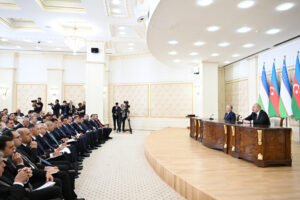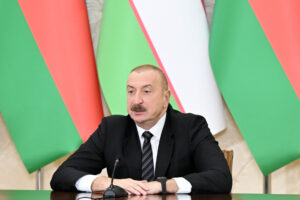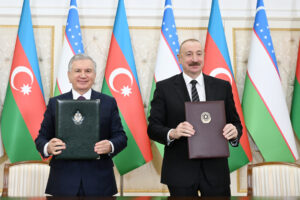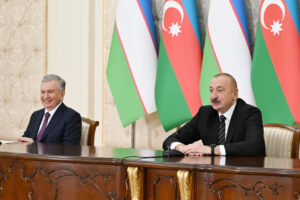Tokyo, 15 September, /AJMEDIA/
Candidates in Japan’s ruling party leadership election on Saturday underlined the importance of bolstering ties with like-minded partners in Asia and beyond to cope with the rise of an assertive China and provocative North Korea.
While the security alliance with the United States remains key for Japan, the contenders showed different visions on the shape of future multilateral cooperation, ranging from the creation of an Asian-style NATO collective security arrangement to a more loose network of countries that share values and objectives.
Former Defense Minister Shigeru Ishiba, a public favorite to become the next Japanese leader, said NATO-like collective security is necessary in Asia after seeing Russia invade Ukraine, a non-NATO country.
“My idea is to start with countries facing a similar (security) environment. It doesn’t mean that China will be excluded,” Ishiba said in a joint debate with eight other candidates running in the leadership election of the Liberal Democratic Party.
Still, he acknowledged that various issues need to be resolved before such a framework can be established, including what is possible under Japan’s war-renouncing Constitution and which countries would participate.
In NATO, an attack on one member is considered an attack on all members.
The next LDP president is certain to become prime minister, given both houses of parliament are controlled by the LDP and its junior coalition partner, the Komeito party.
LDP Secretary General Toshimitsu Motegi and Chief Cabinet Secretary Yoshimasa Hayashi, both with the experience of serving as foreign minister, took a cautious stance.
“The question is whether something that is good in theory is possible,” Motegi said, adding that it would be “realistic” to strengthen the current architecture with the Japan-U.S. alliance at its core and explore cooperation with other Asian nations for the region’s peace and stability.
Shared concerns about China’s assertive moves, particularly at sea and in the air, have accelerated the push for a “free and open” Indo-Pacific, which includes the East and South China seas. Russia’s war on Ukraine has set off alarm bells among Japanese politicians amid heightened tensions between China and Taiwan.
Digital Minister Taro Kono, who held the posts of foreign and defense ministers in the past, emphasized that Japan must work with other democracies, the Association of Southeast Asian Nations and emerging powers in the so-called Global South.
“Bilateral relations between Japan and China are, of course, important, but having a joint front and strategy with like-minded nations and democracies will become powerful in dealing with issues like China’s overproduction, chips and others,” Kono said.
Speaking alongside the other eight candidates, four being former or current top Japanese diplomats, Shinjiro Koizumi, a rising LDP star and another public favorite to become the next leader, said he will pursue direct talks with his Chinese and North Korean counterparts if he becomes premier.
“At the end of the day, how top leaders can talk matters. Without this, no major breakthroughs or positive developments will be possible,” Koizumi said at the event hosted by the Japan National Press Club in Tokyo.
He also suggested that any Japanese prime minister who fails to strengthen the Japan-U.S. alliance cannot succeed in achieving amicable relations with other nations.
Koizumi’s father Junichiro Koizumi visited North Korea as prime minister in 2002, a historic move that paved the way for the return of five Japanese abducted by Pyongyang in the 1970s and 1980s.
Prime Minister Fumio Kishida has decided to step down when his term as LDP president ends in late September. Under his leadership, Japan decided to substantially increase defense spending as North Korea continues to launch ballistic missiles and China tries to make attempts to change the status quo by force.
Former economic security minister Takayuki Kobayashi said Japan should not be “passive” toward China, which is boosting its military presence in the region, but the country also has to seek stable and constructive relations that benefit both economies.
Sanae Takaichi, who is currently economic security minister and one of the most conservative members among the nine contenders, has stressed the need for Japan to keep the United States “engaged” in the region.
Foreign Minister Yoko Kamikawa said she will work to solve the issue of the Japanese abductees. Former Chief Cabinet Secretary Katsunobu Kato, who was in charge of that issue, said Japan should explore summit talks with North Korea at an appropriate time, taking into account various factors, including its relations with the United States.

